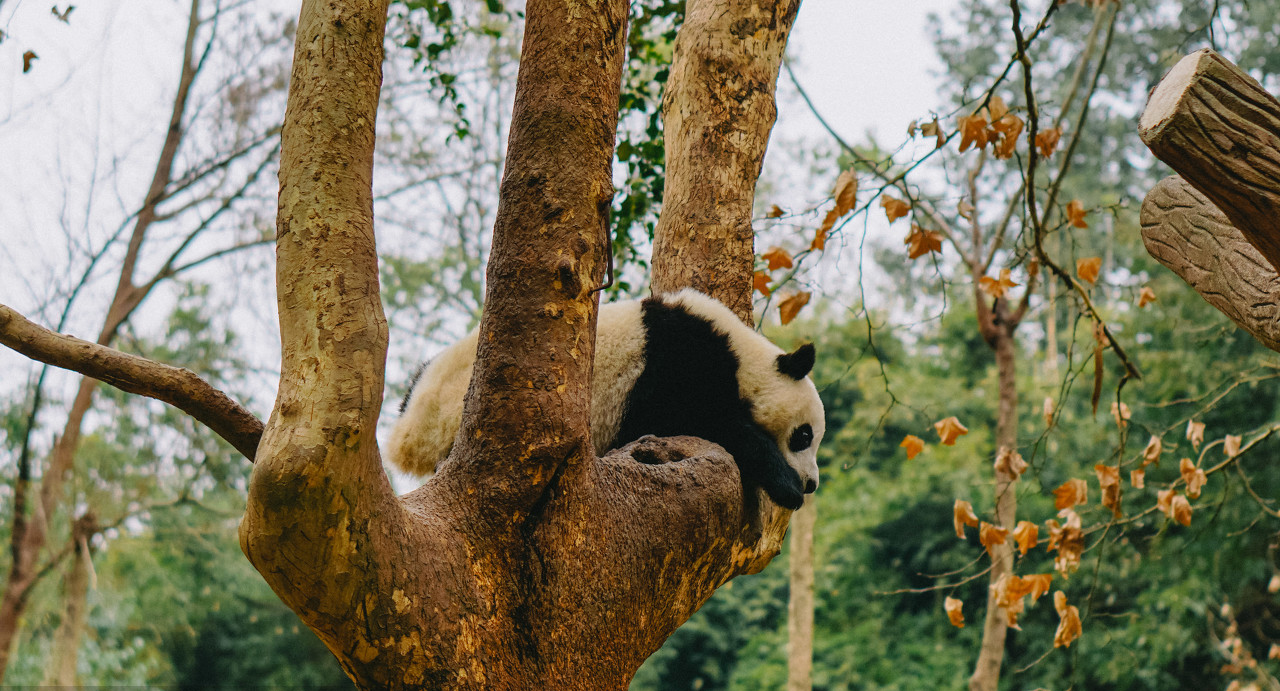Chinese Name: 成都动物园 Pronunciation: Chéngdū Dòngwùyuán
Building Time: 1953
Recommended Time for Visit: 2-4 Hours
Occupied Area: About 173,420 square meters
Number of Animals: More than 3,000
Address: No.234 Zhaojuesi South Road, Chenghua District, Chengdu City, Sichuan Province, China
| Visitors | Price |
| Adults | 20 yuan |
| Children aged between 6 and 18 (with certificates) | 10 yuan |
| Children under 6 years old or under 1.3 meters; Seniors aged 60 and above (with ID card); People with disabilities (with certificates) |
Free |
| Time | Opening Hours |
| April - November | 8: 00 - 17: 00 |
| December - March | 8: 30 - 17: 00 |
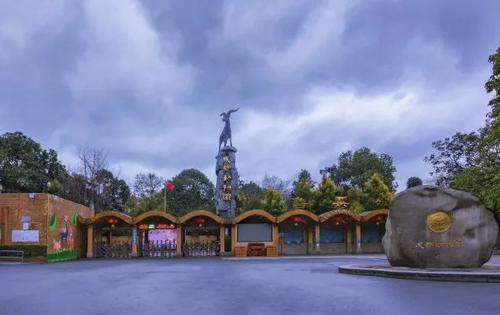
Chengdu Zoo was founded on October 1, 1953. It was the first independent zoo in Chengdu’s history and was once named Baihuatan Zoo. In 1976, it was officially moved to the current site and named Chengdu City Zoo. In 2010, it was renamed Chengdu Zoo. In 2006 and 2009 respectively, it was awarded the titles of “Chengdu Wildlife Rescue Center” and “Chengdu Wildlife Research Institute”; in 2019, it was granted “Sichuan Wildlife Rescue Center”.
Chengdu Zoo now is a comprehensive institution integrating wildlife breeding, rescue, scientific research, and education. Chengdu Zoo displays more than 220 species and more than 2,500 animals of rare and endangered wild animals protected by the state, including various mammals, amphibians and reptiles, birds, and ornamental fish. It receives more than 5 million tourists annually, ranking the first among the city zoos in the country in terms of comprehensive strength.
Chengdu Zoo was awarded the “Global 500” by the United Nations Environment Program, the “National Science Popularization Education Base” by the China Association of Science and Technology, the “National Top Ten Zoos” by the China Zoo Association, and the “National Science Popularization Education Base for Wildlife Conservation Association” by the China Wildlife Conservation Association.
In 1953, Chengdu Baihuatan Zoo was built. It is the predecessor of Chengdu Zoo.
In 1974, the planning for the northern suburb zoo began, which was Chengdu Zoo.
In 1976, the zoo was officially moved from Baihuatan to No. 234, Zhaojuesi South Road, Chengdu. There were more than 30 groups of animal houses.
In 1989, Chengdu Zoo was rated as the “Global 500” by the United Nations Environment Program.
In 1996, Chengdu Zoo was awarded the “Top Ten Zoos in China” by the State Ministry of Construction.
In 2013, “Sichuan Snub-nosed Monkey Breeding Center” was established in Chengdu Zoo.
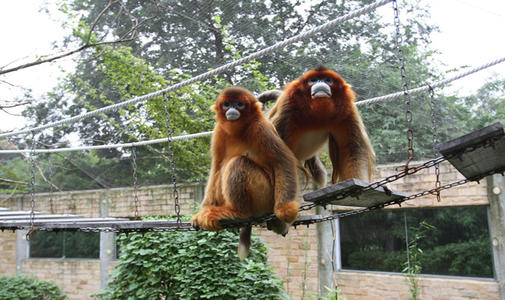
Pandas are native to China and their main natural habitats are mountainous areas in Sichuan, Shaanxi, and Gansu Provinces. Pandas have lived on the earth for at least eight million years and are known as “living fossils” and “national treasures of China”.
There are five species of golden monkeys: Burmese golden monkeys, Sichuan golden monkey, Yunnan golden monkey, Guizhou golden monkey, and Vietnamese golden monkey. Except for the Burmese and Vietnamese species, they are all native to China.
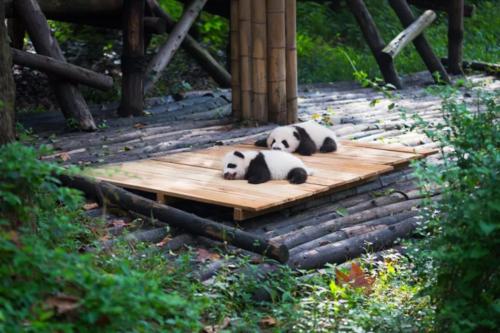
The Panda House is located in the center of the zoo, with four pandas. The house covers an area of about 1,000 square meters and consists of three outdoor sports grounds, four air-conditioned rooms, an indoor exhibition hall, and several operating rooms.
The house has exhibited pandas since the opening of Chengdu Zoo. In the process of raising and breeding pandas, Chengdu Zoo took the lead and made a major breakthrough in the research of artificial insemination of pandas as early as the 1980s. Since the 1980s, young pandas have been born every year.
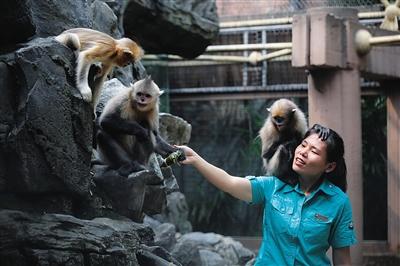
Located in the heart of Chengdu Zoo, the Golden Monkey House was completed and put into use in 2007. The house includes an inner exhibition hall and two outreach venues, which are designed to imitate the natural environment.
The park is raising the most beautiful species of golden monkeys, namely Sichuan golden monkeys. In the Golden Monkey House, four playful sub-adult golden monkeys can often be seen. They are a group of three younger sisters led by their brother Cheng Cheng, all born in Chengdu Zoo. Next door lives another happy golden monkey family of three, of which the youngest was born on March 20th, 2009.
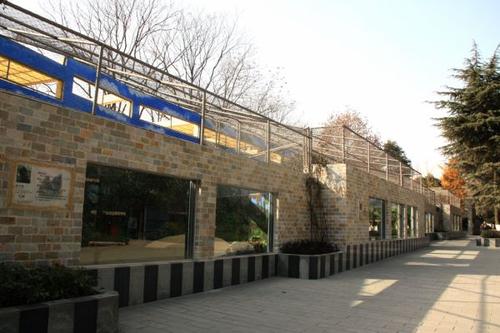
The house is located in the center of the park and was rebuilt and put into use in early 2011. It keeps and displays mandrills, snub-nosed monkeys, Anubis Baboon, Arabian baboons, and other animals. The number of mandrills in the park ranks first among the zoos in China.
Children should be accompanied and supervised by adults while in the zoo.
Please do not feed, tease, or hit animals.
No pets, skates, skateboards, or bicycles are allowed in the zoo.
Main Gate (North Gate): Take bus 9, 18, 32, 64, 99, 527, or 650, and get off at Chengdu Zoo Station.
Take Metro Line 3, and get off at Chengdu Zoo Station (Exit A).
Chinese: 请带我去成都动物园。 English: Please take me to Chengdu Zoo.
Chinese: 请带我去成都动物园的北门。 English: Please take me to the North Gate of Chengdu Zoo.
Chinese: 请带我去成都动物园的南门。 English: Please take me to the South Gate of Chengdu Zoo.
If you go to Chengdu Zoo from Chengdu Shuangliu International Airport, it takes about 45 minutes (about 80 yuan).
If you go to Chengdu Zoo from the center of Chengdu (Ritz-Carlton Hotel), it takes about 30 minutes (about 30 yuan).
If you go to Chengdu Zoo from Chengdu East Train Station, it takes about 25 minutes (about 30 yuan).
